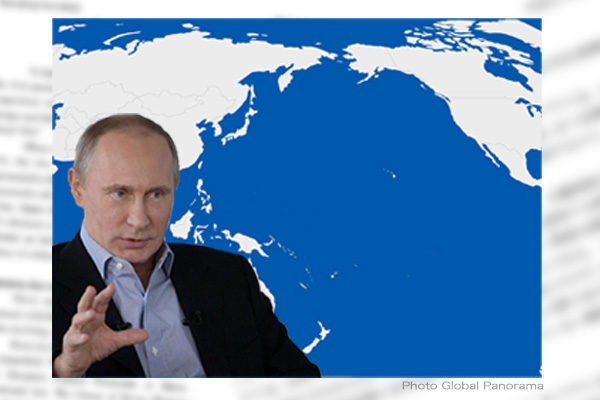On May 6, ahead of the anniversary of the victory over Germany in World War II, the Russian Defense Ministry announced that it had begun preparations for drills simulating the use of tactical nuclear weapons in the vicinity of the border with Ukraine.
“Our strategic forces are ready for combat,” Russian President Vladimir Putin said on May 9 for the anniversary, referring to nuclear forces repeatedly. A military parade on the day featured the Iskander nuclear-capable short-range ballistic missile.
NPT regime on verge of collapse
“This is an example of irresponsible rhetoric,” a Pentagon spokesman said when criticizing the Putin remark. “It’s completely inappropriate given the current security situation.” A North Atlantic Treaty Organization spokesman slammed the remark as dangerous and irresponsible. A spokesman for Ukraine’s Ministry of Defense dismissed the remark, saying that nuclear intimidation was a regular tool of the Putin regime.
Russia’s nuclear intimidation is not new. On February 24, 2022, when Russia launched the war in Ukraine, Putin emphasized Russia as the most powerful nuclear power. On February 27 in the same year, Putin put the Russian nuclear deterrent forces on high alert status. In March last year, Russia deployed tactical nuclear weapons in Belarus.
Nuclear weapons have not been used since the atomic bombings of Hiroshima and Nagasaki. This is not to say that nuclear weapons are useless. As it is said that nuclear weapons are effective as long as they are not used (Luttwak’s paradox), nuclear threat or intimidation is extremely effective. In response to Putin’s intimidation, U.S. President Joe Biden quickly stated that the United States would not send troops to Ukraine. The U.S., while being a nuclear power positioned to deter Russia’s aggression, has been deterred.
On the other hand, the Nuclear Non-proliferation Treaty regime is on the verge of collapse as Russia as a nuclear power has threatened Ukraine with potential nuclear strikes. While the number of parties to the NPT is as high as 191 at present, the premise for the treaty is that the five permanent members of the United Nations Security Council, which have been granted a monopoly on nuclear weapons, will neither use nuclear weapons against non-nuclear states nor threaten or intimidate them with potential nuclear strikes.
Is it okay for Japan to keep three non-nuclear principles?
Seeing the reality of the Ukraine war, North Korea will never abandon its nuclear weapons. There is no doubt that dictatorships aiming to acquire nuclear weapons will emerge one after another. If the NPT regime collapses, it is expected that the extended nuclear deterrence of the U.S. will not work as it has in the past. Is it enough for Japan to simply turn away from nuclear threats and recite the three non-nuclear principles of not possessing, not producing, and not permitting the introduction of nuclear weapons?
The National Security Strategy, approved by the cabinet in December 2022, is an excellent strategy. With regard to nuclear issue, however, it only calls for depending on the U.S.’ extended deterrence and abiding strictly with the three non-nuclear principles. It lacks a nuclear deterrence strategy, making it less than perfect as a national security strategy.
Japan is surrounded by three nuclear powers: China, Russia, and North Korea. Any country just being frightened by nuclear threats is not a sovereign state. Japan must be the easiest country for nuclear powers to control. Japan needs to start a taboo-free discussion and urgently establish a nuclear deterrence strategy.
Kunio Orita is a member of the JINF Planning Committee and a special professor at Reitaku University. He is a retired Lieutenant General of the Japan Air Self-Defense Force.


